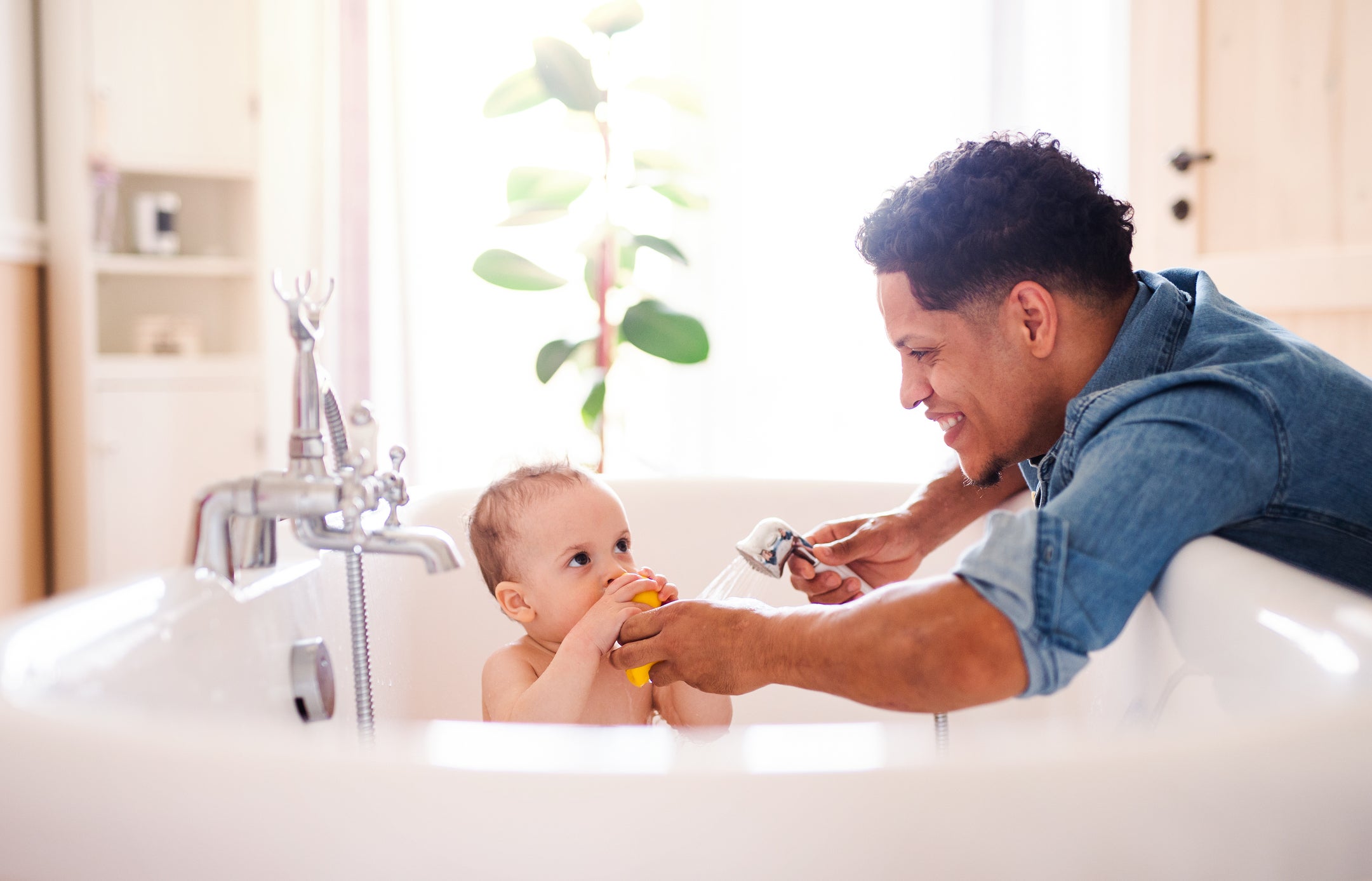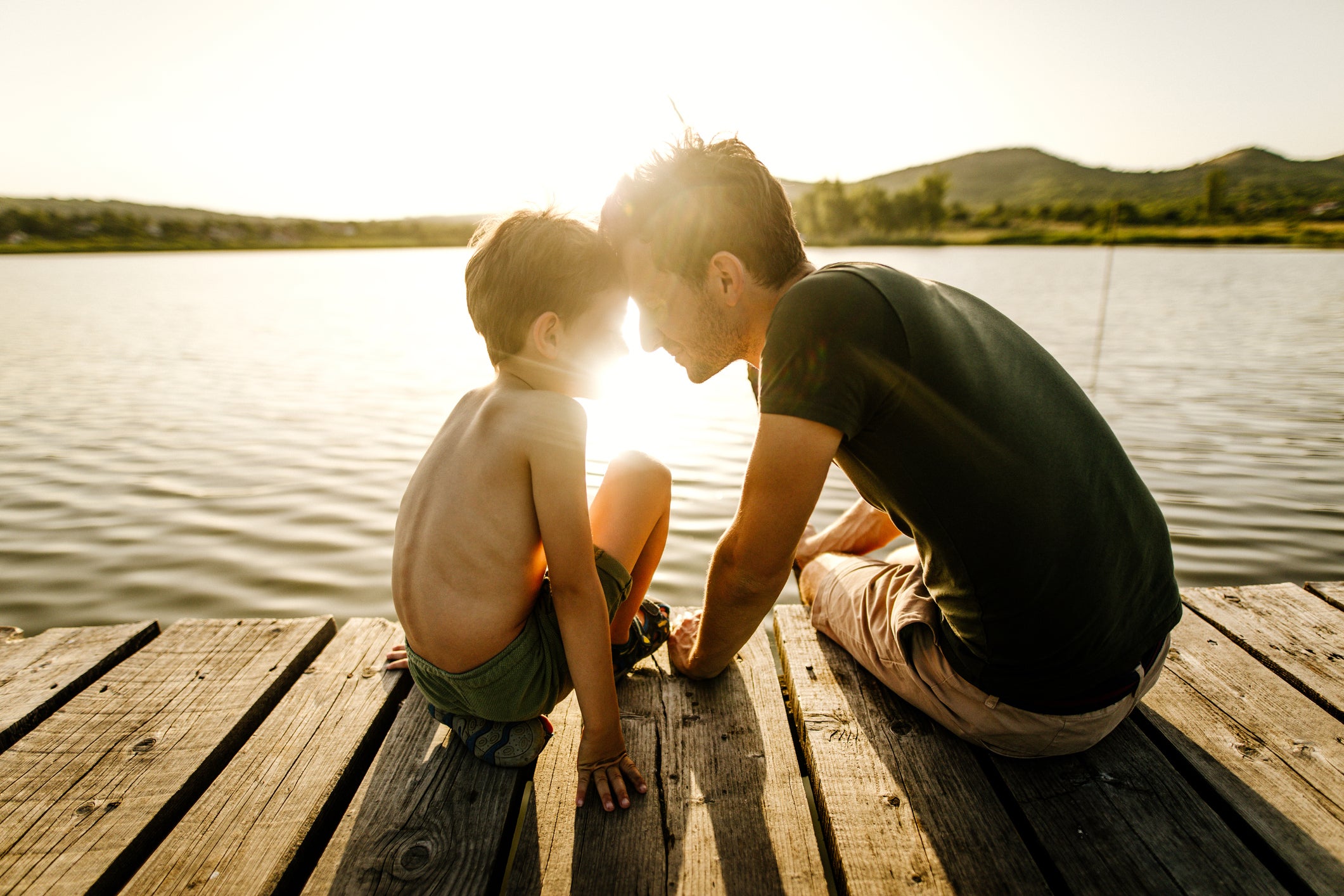-
Basic Things Everything Parent Should Know

Parenting doesn’t come with a guidebook. From the first ultrasound to the first day of college, parenting is bound to be simultaneously the hardest and the most rewarding thing you have ever done. If you and your partner are about to start this journey together, here are a few basic things you need to know.
No Parent is Perfect
It is so easy to get down on yourself. When you’re having a bad day, repeat this mantra: “No parent is perfect, but I love my child more than anything, and that’s what really matters.”
Learn to Listen
Active listening is a skill many people work on their entire lives. Even when speaking to a child, strive to make eye contact, don’t interrupt, and resist the urge to give unsolicited advice. Once your child is finished talking, say things like, “How does that make you feel?” or “What do you think we can do to fix that?” By avoiding the need to make every conversation a lesson from you, you empower your child to solve their own problems and encourage them to continue communicating with you.
Turn to Books to Help Solve Problems
Some bedtime stories are just for fun, but others teach important life lessons. Here are some books to make sure you have on the shelf:
- Sometimes I’m Bombaloo by Rachel Vail – Tantrums, ages 3 and up
- Chrysanthemum by Kevin Henkes – Teasing, ages 3 to 6
- The Recess Queen by Aleix O’Neill – Bullying, ages 4 to 8
- My Best Friend by Mary Ann Rodman – Friends, ages 5 to 8
Seek Value in Experiences, Not Things
If you worry about the cost of giving your baby a good childhood, realize that expensive things aren’t important to a child. Cut up a shoebox for puppet theater instead of buying the latest electronic toys. Make memories cooking dinner together rather than paying to be served at a restaurant. Let your kid play outside in hand-me-down clothing instead of worrying about their designer clothes getting dirty.
Rewards aren’t the Same as Bribes
Bribes are spur-of-the-moment decisions made to avert disaster, such as offering to buy your daughter a sucker if she stops having a tantrum in the checkout line. This teaches kids that acting out is the perfect way to get what they want.
On the other hand, rewards are planned ahead of time. Much like your job’s paycheck, they provide a concrete incentive to do a good job. When using rewards, make sure the incentives and expected behaviors are clear. Then, be sure to follow through.
Are you and your partner ready to take on the challenges and rewards of parenthood? Even if you’ve had a vasectomy, you still have options. Dr. Joshua Green of the Center for Vasectomy Reversal is a leader in helping men become parents. For more information about the vasectomy reversal procedure, please contact our Sarasota, FL clinic at 941-894-6428 or schedule a free consultation online.
-
How to Take Care of Your Baby’s Skin and Hair

A baby’s skin and hair are extra-sensitive, so it’s important to care for them properly. Follow these tips to avoid irritation, rashes, and allergies.
Choose Gentle Products
Scan baby skincare product labels and find those with as few ingredients as possible. Keep in mind that many of the best products may not be marketed toward babies. Here are some recommendations:
- Tearless shampoo
- Soap-free cleansers
- Petroleum jelly or zinc oxide cream in place of commercial diaper cream
- Alcohol-free wipes, or water and a washcloth
- Creams or ointments instead of baby lotion
- Fragrance-free liquid laundry detergent
Bathe Only When Necessary
To avoid irritating and drying out your baby’s skin, bathe no more than three times per week. Of course, “spot clean” as needed to remove soil and messes. In the first few weeks, sponge-bathe your newborn, focusing on creases and folds where moisture and bacteria can hide. Use cleansers in the private areas and underarms every time you bathe your child, and cleanse the whole body once a week.
If your baby has hair, apply shampoo at each bath. If you notice crusty scales known as cradle cap, shampoo daily with a pediatrician-recommended shampoo.
Change Diapers Often
Diaper rash is often the result of leaving a dirty diaper on too long, so keep an eye out, especially after feedings. Only use wipes when your baby goes number two. Then, to prevent chafing, apply diaper cream at every change. If your baby is prone to rashes, stick with disposable diapers because they keep the skin drier than cloth alternatives.
Dress with Care
Avoid wool baby clothes, which can be irritating. Soft cotton or linen is the way to go. Also, launder any new clothing before dressing your baby in it.
Shield Your Baby from the Sun
UV rays are particularly damaging to infant skin because it has less pigment to protect it from the sun. If your baby gets sunburned, this could raise the risk of skin cancer later in life. For the first six months, avoid spending long hours outside between 10:00 am and 3:00 pm when the sun is at its brightest. When you do head outside, follow these tips:
- Block the sun with a stroller shade or umbrella.
- Dress your baby in long-sleeved shirts and long pants.
- Put your baby in a wide-brimmed hat that covers the face and neck.
- Apply broad-spectrum, SPF-30-or-higher sunscreen. Look for a product with zinc oxide, which starts working right away. Then, remember to reapply every two hours or anytime your baby gets wet.
Are you and your partner ready to become parents? If you’ve had a vasectomy in the past, we recommend starting your journey by meeting with Dr. Joshua Green for a vasectomy reversal consultation. Our staff will provide concierge-level care and friendly interactions every step of the way. For more information, please contact the Center for Vasectomy Reversal in Sarasota, FL at 941-894-6428 or schedule a free consultation online.
-
How to Prepare your Home and Surroundings for your Baby’s Arrival

Whether you’re expecting your first baby or adding to your growing family, preparing for the new arrival is exciting. It can also be a little bit overwhelming, as you try to think about everything you might need and everything you need to do. Don’t worry! We’ve got you covered, with this list of helpful tips.
- Deep clean before the baby comes. Now is the time to do this, before you’re busy with a newborn. Either deep clean on your own or hire someone else to do it. Consider steam cleaning your floors, to remove dirt and germs without chemicals. Don’t hesitate to hire help with cleaning after the baby arrives.
- Know your limits. Some tasks are not good for a pregnant woman to do. Avoid moving furniture or doing other extremely strenuous tasks, and delegate the cleaning of the cat box to someone else.
- Set yourself up for success post-baby. Create space beside your front door and insist that people remove their shoes when they enter your home. Get a separate hamper for the nursery. Stash cleaning wipes near hotspots like doorknobs and faucet handles, so it’s easy to keep them germ free. Establish cleaning routines that can be easily and quickly implemented by anyone helping you.
- Do a thorough safety check. Your baby will become mobile more quickly than you can possibly imagine. Now, before the baby arrives, remove possible hazards and secure dangerous items. Store medicine out of reach and out of sight, and securely lock your cabinets. Magnetic locks work well on nearly every type of cabinet, allowing you to keep little ones safe without pinching your fingers. IF you have firearms in your house, remove and lock ammunition and lock it away in a place separate from the gun. Install smoke and carbon monoxide detectors or check to make sure yours are working properly.
- Clear some room in your fridge. You’ll need to make room to store bottles of formula or breastmilk. Also, people will probably bring casseroles and meals to help you out after your new little one arrives, and you should make sure there’s space for that. It’s also not a bad idea to throw out anything on the verge of going bad and give your refrigerator a good cleaning before you have the baby.
- Get ready for visitors. Will someone be coming to stay and help after the baby arrives? Take some time now to make sure you’ve got everything an overnight guest will need. Change the sheets in your guest room and buy extra toothbrushes, toothpaste, and soap.
At the Center for Vasectomy Reversal, we love helping people build their families. Under the direction of Dr. Joshua Green, our team provides state-of-the-art treatment for men who need a reversal of their vasectomy or have other fertility concerns. To learn more, contact us through our website, or call 941-894-6428 for a free consultation.
-
National Childhood Cancer Awareness Month

Did you know that September is National Childhood Cancer Awareness Month? It was so designated to bring awareness to childhood cancer, which is the leading cause of death by disease for children in the United States under 14. It’s also a time to honor those with pediatric cancer, as we continue to search for a cure.
- At least 175,000 children are diagnosed with cancer each year. Because of advances in treatment, more than 80% of those children survive their cancer. In fact, there are about 420,000 adults in the United States who are childhood cancer survivors.
- What causes pediatric cancer? Childhood cancer causes aren’t fully understood. The common theory is that cancer-causing genetic changes occur by chance. In about 8% of cases, babies are born with genetic risk factors.
- Cancers that develop in children are different than those found in adults. Though in some rare cases children can develop cancers normally seen in adults, the most common childhood cancers are:
- Leukemia: The most common childhood cancer, accounting for about 34% of cases. Typically occurs between 2 and 4, more commonly in males.
- Brain and Spinal Cord Tumors: Spinal cord tumors are rare; brain tumors typically start in the lower parts of the brain.
- Neuroblastoma: Typically starts younger than 5 years old.
- Wilms Tumor: Usually found in very young children, uncommon over age 6.
- Lymphoma: Hodgkin lymphoma is rare in children younger than 5, non-Hodgkin lymphoma is more common, but rare under 3.
- Rhabdomyosarcoma: Affects skeletal muscles, commonly in kids under 5.
- Retinoblastoma: Eye cancer, generally diagnosed before age 3.
- Bone Cancer: Usually occurs in teens.
- Symptoms of childhood cancers are often overlooked. Cancer’s early warning signs can be masked by common illnesses or everyday bumps and bruises. It’s crucial for parents to be aware of the warning signs and remain vigilant for signs of childhood cancer, which include:
- Leukemia: Bone and joint pain, fatigue, weakness, bleeding, fever, and weight loss.
- Brain Tumors: Headaches, dizziness, balance problems, vision, hearing, or speech problems, frequent vomiting.
- Neuroblastoma: Impaired ability to walk, changes in eyes, including bulging, dark circles, and droopy eyelids, pain in different parts of the body, diarrhea, and high blood pressure.
- Wilm’s Tumor: Swelling or lump in the belly, fever, pain, nausea, poor appetite.
- Lymphoma: Swollen lymph nodes in the neck, groin, or armpit, weight loss, fever, sweats, and weakness.
- Bone Cancer: Bone pain, often growing worse at night or with activity, swelling.
If you’re planning to have kids, it’s important to know how to spot signs of cancer in children. At the Center for Vasectomy Reversal, we love helping people build their families. Under the direction of Dr. Joshua Green, our team provides state-of-the-art treatment for men who need a reversal of their vasectomy or have other fertility concerns. To learn more, contact us through our website, or call 941-894-6428 for a free consultation.
Recent Posts
Popular Posts
categories
- Uncategorized
- Sperm Retrieval
- vasectomy reversal
- Emergency
- Dr. Green
- sperm count
- fertility
- male infertility
- MESA
- medical care
- low sperm count
- IVF
- male fertility testing
- anesthesia
- pregnancy
- sperm aspiration
- semen analysis
- post-vasectomy pain syndrome
- infertility
- VE
- anti-sperm antibodies
- older dad
- general anesthesia
- gender reveal party
- post-operative infections
- baby name
- parent
- baby's first year
- fertilization process
- spinal anesthesia
- ACS Fellow
- nutrition tips
- concierge-level care
- fertility planning app
- azoospermia
- out-of-town patients
- V-V
- post-vasectomy reversal
- conceiving
- vasectomy
- vasoepididymostomy
- smoking
- sperm quality
- baby registry
- infographic
- surgical care
- surgical consultation process
- prostate cancer
- baby gender
- family time
- COVID
- Baby Shower
- Child Care
- Halloween Costume Ideas for Babies
- Halloween
- Halloween Safety Tips
- Celebrity Infertility Spotlight
- Postpartum
- testosterone
- Father's Day
- Father
- Men's Health
- Thanksgiving
- Pregnancy Announcement
- Parenting Tips
- Sperm
